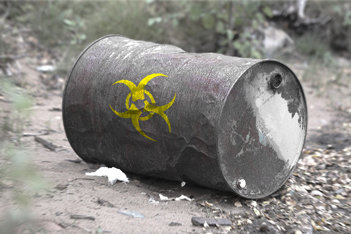Global Scans · Bio weapons · Weekly Summary

A global catastrophic risk is a hypothetical future event that has the potential to damage human well-being on a global scale. Some events could cripple or destroy modern civilization. Any event that could cause human extinction is known as an existential risk.
- The current WMD (Weapons of Mass Destruction) issue most significant to U.S. national security - utilizing a definition of WMD that focuses on CBRN (Chemical, Biological, Radiological, and Nuclear) threats - is that of biological weapons. Modern Diplomacy
- The Trump administration will have to manage increasing risks from the unintended consequences of technological change and deter countries suspected of pursuing biological weapons. The Council on Strategic Risks - Anticipating, Analyzin
- Russia's ongoing war in Ukraine has increasingly raised fears of nuclear war, while rapid advancements in artificial intelligence have opened the possibility that it could be used to make biological weapons. Daily Mail
- The U.S. has imposed a raft of measures aimed at restricting the shipment of advanced GPU chips - which enable AI - to China to hobble its artificial intelligence capabilities, which Washington fears could be used to develop bioweapons and launch large-scale cyberattacks. Gadgets 360
- Since GoF research is considered dual-use, which means it can be used for both preventive pandemic measures and as offensive biological weapons, it is possible the allegedly defensive / peaceful R&D the WHO is advocating for could also be used to develop biological weapons. Unlimited Hangout
- The enlargement of the network of bio laboratories, which may be used to develop and store components of biological weapons, poses a threat to the military security of the Russian Federation. TASS
- The PRC and Russia likely possess capabilities relevant to chemical and biological warfare that pose a threat to U.S., Allied, and partner forces, military operations, and civilian populations. Inspector General U.S. Department of Defense
- As US nuclear deterrence does more harm than good and biotech erodes natural barriers to bioweapons, the United States has a unique opportunity to advocate for strengthening the Biological Weapons Convention. Inkstick Media
- The Iraqis were still concealing information about 31,000 chemical munitions, 4,000 tons of chemicals that could be used for weapons, and large quantities of material that could be employed for the production of biological weapons. The Atlantic
- The war in Ukraine has raised concerns about disruption to regional and global security with the possibility of Russia covertly using chemical or biological weapons under a false-flag operation. Eventbrite
- China, Iran, North Korea, and Russia continue to publicly push false narratives that may drive global threat perceptions of biological weapons, including linking U.S. laboratories abroad to COVID-19 origins, breaches in biosafety, untrustworthy vaccines, and biological weapons. Director of National Intelligence
- The risk that Russia will engage in biological warfare increases as conditions in Ukraine become more chaotic, weakening norms of warfare. Bulletin of the Atomic Scientists
- While addressing the challenges posed by nuclear weapons is essential for global security, it is equally crucial to focus on the threats from chemical and biological weapons, which can be more lethal and alarmingly more accessible than nuclear arms. EDUREV.IN
- Even non-state actors in an unusually strong position to access biological weapons, and with the goal of causing indiscriminate mass civilian casualties, either will not want to carry out biological attacks or will be unable to. Adam Smith Research Trust
- In a doomsday scenario, China could use American and global genomic data to create targeted bioweapons, with catastrophic implications for global security and stability. STAT
- The UN has given highest priority to reducing and eventually eliminating nuclear weapons, destroying chemical weapons, and strengthening the prohibition of biological weapons - all of which pose the direst threats to humankind. United Nations
- The Australia Group is an informal arrangement that aims to allow exporting countries to minimize the risk of assisting chemical and biological weapons proliferation, whereas the Wassenaar Arrangement is a formal group under the OECD holding identical objectives. ClearIAS
- Multilateral conventions on landmines, biological weapons, and chemical weapons have established global norms that reduce risks, especially to civilians. Information Technology and Innovation Foundation
- The participants (national governments) in the Australia Group have developed common export controls on chemical substances and biological agents and related items that could be used in the production of chemical and biological weapons. GAC
Last updated: 26 March 2025
